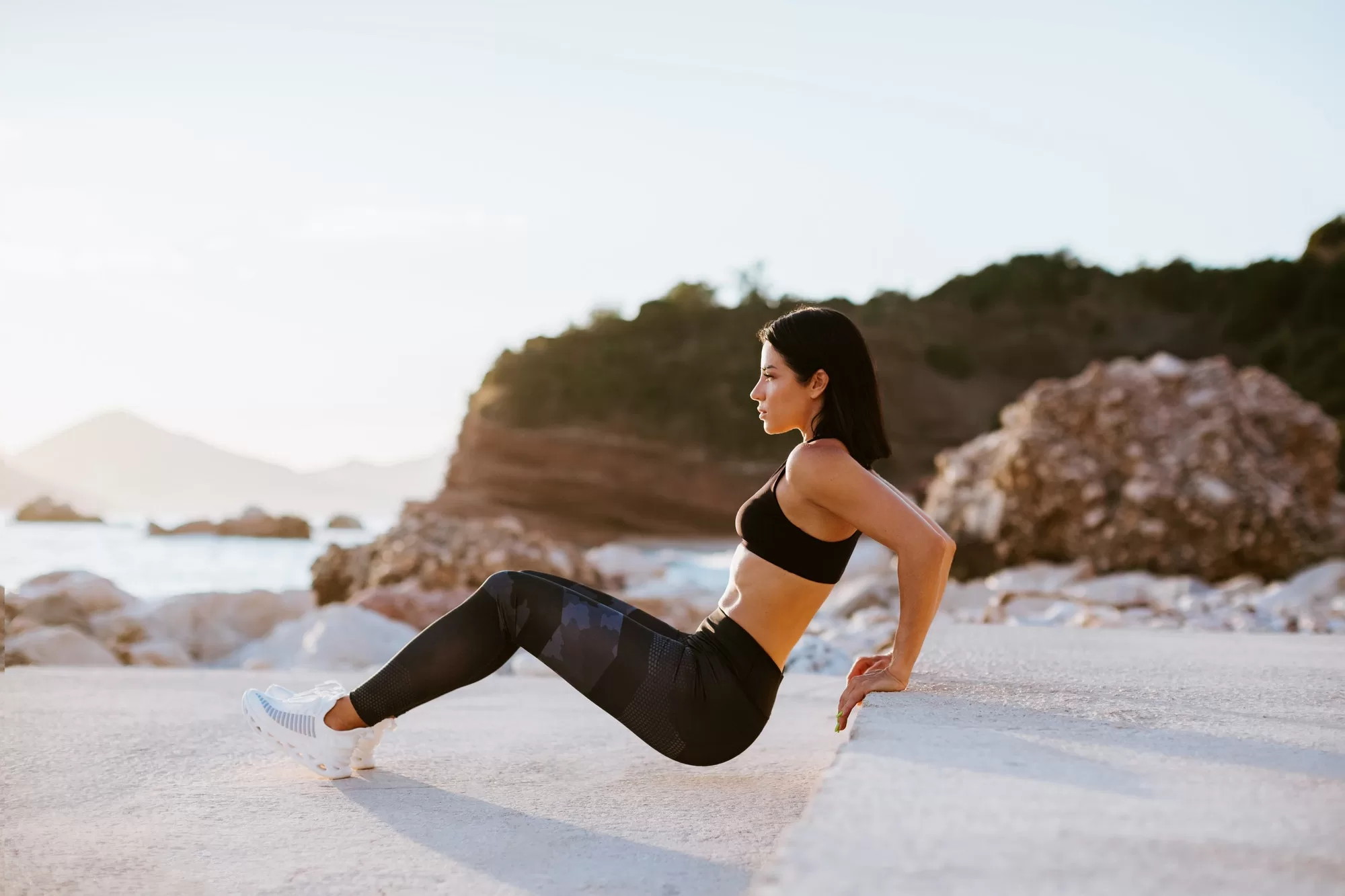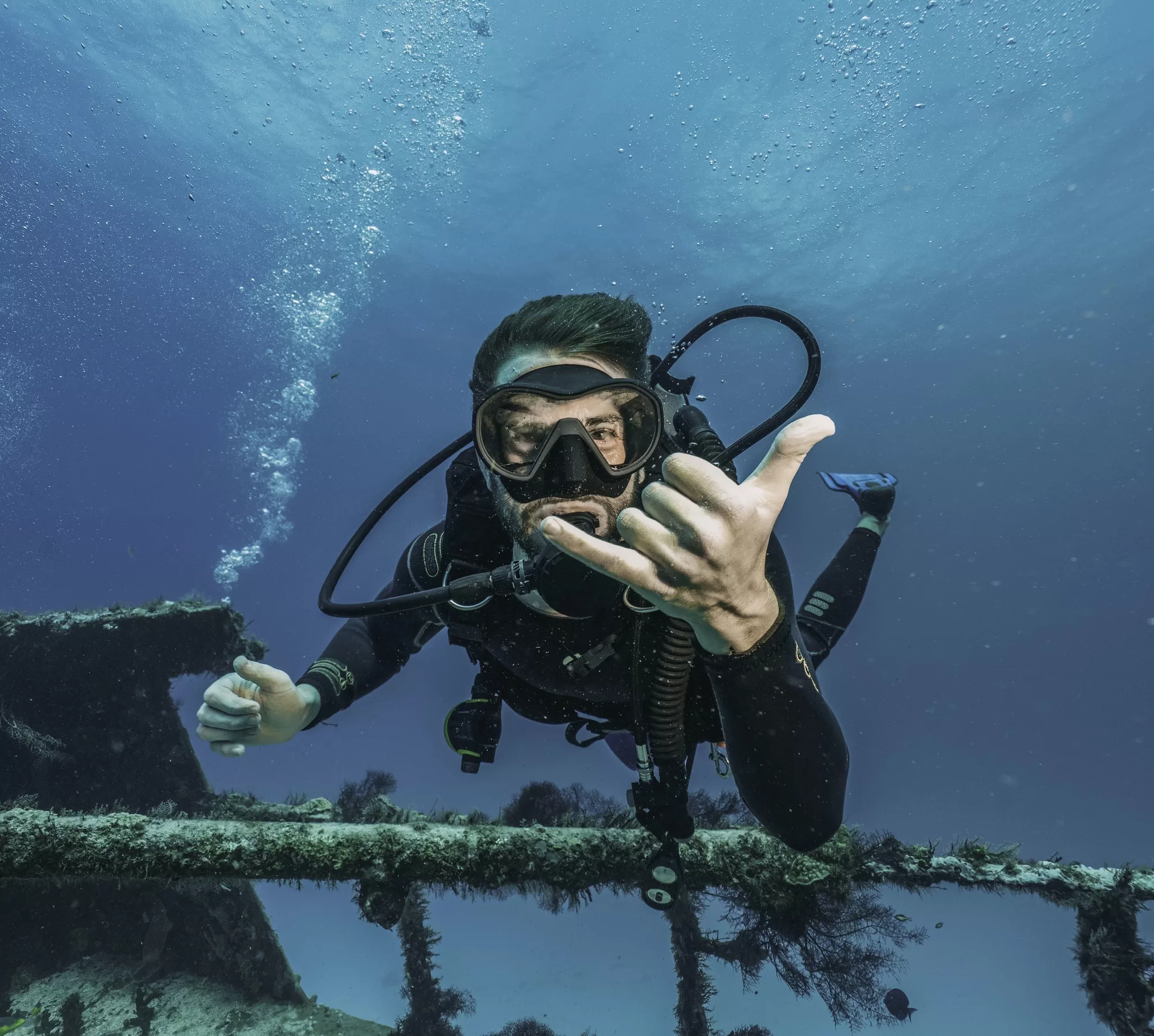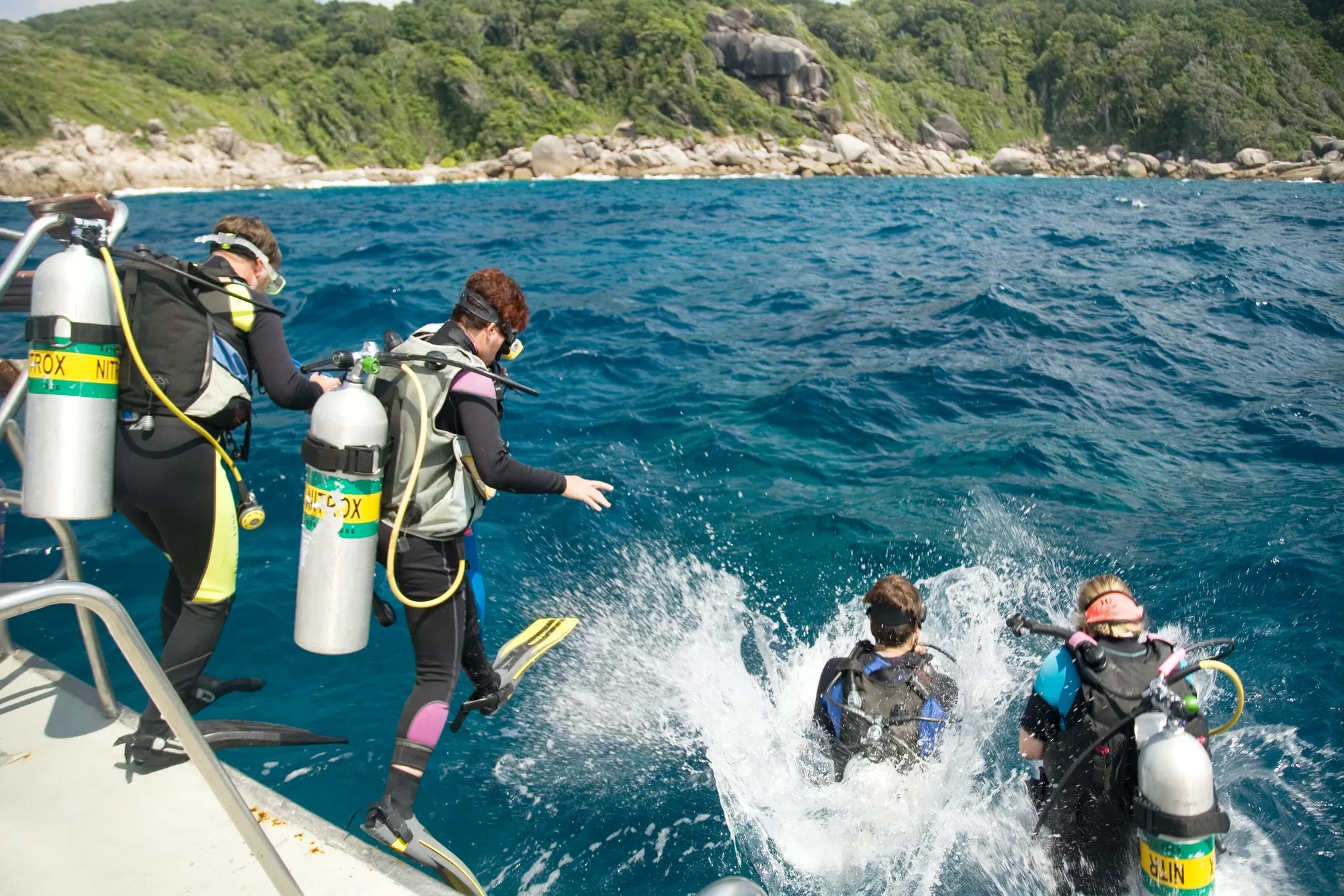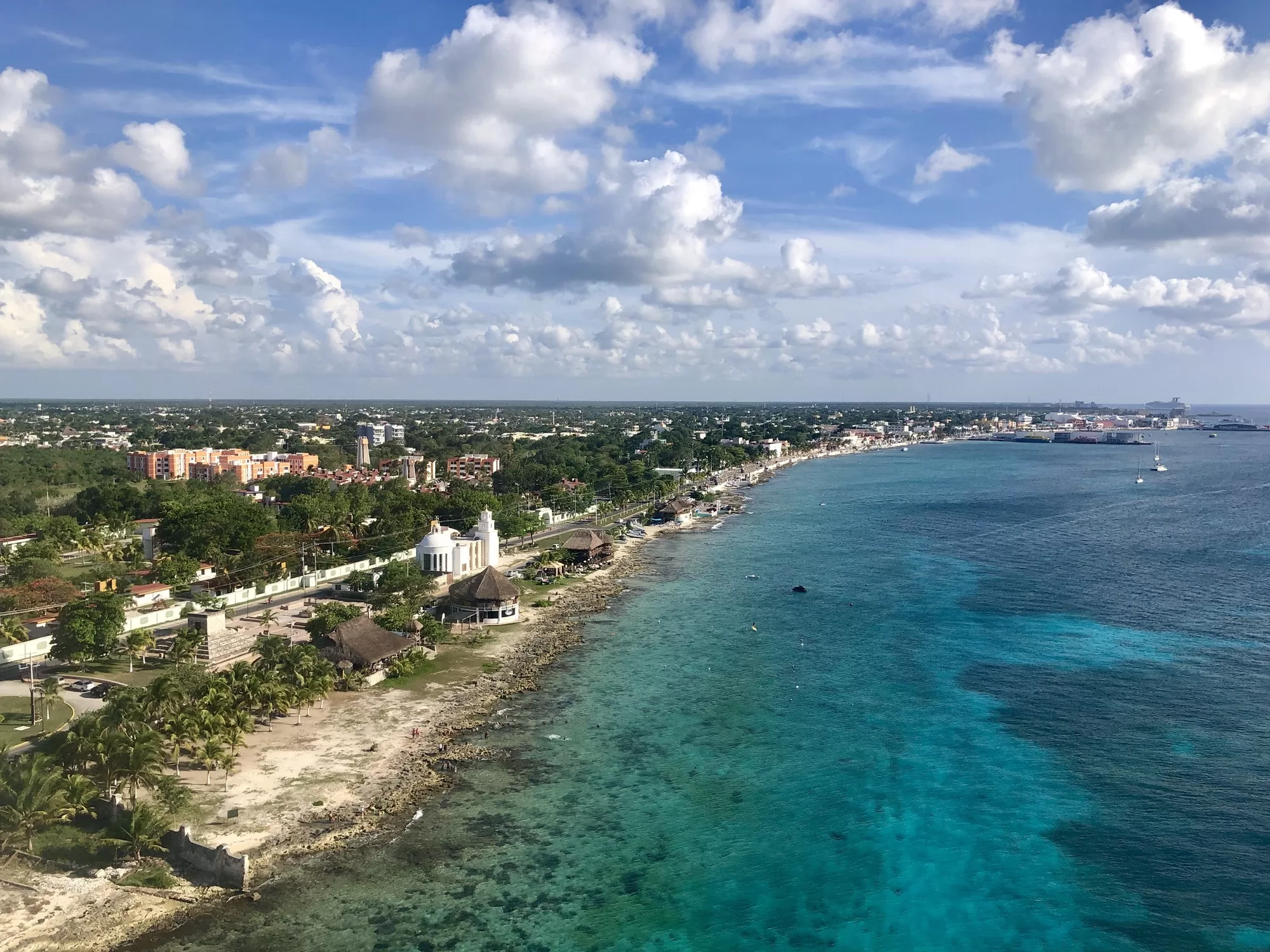Introduction
Hey fellow adventurers and underwater enthusiasts! It’s me, your friendly travel blogger and passionate scuba diver, here to dive into a topic as vital as your next breath underwater: staying physically fit for scuba diving.
Scuba diving is not just about strapping on a tank and exploring the deep blue; it’s an activity that demands a lot from your body. Whether you’re swimming against currents, managing your buoyancy, or just hauling gear, your body needs to be up for the challenge. That’s why maintaining physical fitness is not just a recommendation – it’s a necessity.
But here’s the kicker: staying fit for diving isn’t just about making your dives more enjoyable; it’s crucial for your safety. A fit diver is a safe diver. When you’re fit, you can handle unexpected situations underwater with more ease and less panic. It’s about being able to enjoy the underwater world while keeping yourself, and possibly your dive buddies, out of harm’s way.
Now, let’s plunge into understanding the physical demands of this exhilarating sport.
Understanding the Physical Demands of Scuba Diving
Picture this: you’re 30 feet underwater, surrounded by stunning coral and playful fish. It’s serene, but your body is working hard. Diving challenges your body in ways that are quite different from surface-level sports. It’s a full-body workout, and every part of your journey underwater is a test of your physical capabilities.
Firstly, there’s the stamina aspect. Scuba diving can be a long-duration activity, often requiring sustained physical effort. Whether you’re dealing with currents or simply exploring a large wreck, you need the endurance to enjoy your dive without getting overly fatigued.
Then, there’s strength. Think about the gear you’re carrying – it’s not light. Your muscles, especially in your core, back, and legs, need to be strong enough to handle this equipment effortlessly both in and out of the water. Strength plays a huge role in tasks like finning against currents, maintaining buoyancy, and even getting in and out of the boat or the water.
So, as we can see, scuba diving is not just a leisurely swim in the ocean. It’s a demanding sport that requires a good level of physical fitness. But don’t worry, it’s not about being the next Olympic athlete; it’s about being fit enough to enjoy and safely experience the wonders of the underwater world.
In the next sections, we’ll dive deeper into specific fitness strategies to keep you dive-ready. Stay tuned, and let’s get our dive fitness on track! 🐠🌊🏋️♂️
Core Fitness: The Foundation for Divers
Alright, diving friends, let’s dive into the core of the matter – quite literally! Core strength is your secret weapon in the underwater world. It’s the epicenter of all your diving movements, playing a pivotal role in maintaining your buoyancy control. A strong core keeps you stable and balanced underwater, allowing you to glide effortlessly and respond agilely to the dynamic ocean environment.
But how exactly does a toned core help? Imagine effortlessly floating over a reef or maintaining a perfect hover during a safety stop. That’s your core working its magic! It’s not just about looking good in a wetsuit; it’s about making your dives smoother and more controlled.
To build this vital strength, I recommend a mix of exercises that target all areas of your core. Planks, for instance, are a diver’s best friend. They strengthen your entire core without putting too much strain on your back. Then, there are exercises like Russian twists and leg raises, which are great for targeting those deeper core muscles. Remember, consistency is key. A few minutes each day can make a massive difference in your diving experience.
Cardiovascular Health: Keeping Your Heart Dive-Ready
Moving on to the heart of the matter – cardiovascular health. Your heart plays a crucial role in your diving adventures, more than you might think. A strong cardiovascular system means you can use your air more efficiently, reducing your breathing rate and conserving that precious oxygen in your tank.
Why does this matter? Well, the more efficiently your heart pumps blood, the less oxygen you’ll consume with each breath. This means longer dive times (yay!) and a more relaxed experience underwater. Plus, a healthy heart reduces the risk of decompression sickness and other diving-related health issues.
For the best cardio workouts, think beyond the treadmill. Swimming is, of course, a top choice for us water lovers. It not only improves your cardio but also mimics the movements of diving. Cycling and jogging are great too, especially for building up that lung capacity. Aim for workouts that increase your endurance and are enjoyable – remember, the best workout is the one you’ll stick with!
Flexibility and Mobility: Enhancing Underwater Movement
Now, let’s stretch our understanding to flexibility and mobility. These are the unsung heroes of diving fitness. Good flexibility can significantly reduce your risk of injuries like muscle strains and cramps, which are the last things you want when you’re enjoying a dive.
Think about the movements you make while diving – reaching for your valves, finning, maneuvering in tight spaces. Flexibility ensures these movements are smooth and effortless. It’s about having a full range of motion, allowing you to enjoy your dive without feeling restricted by your own body.
So, how do you become more like an underwater acrobat? Stretching should be a key part of your fitness routine. Focus on dynamic stretches before diving to warm up your muscles and static stretches post-dive to maintain long-term flexibility. Yoga and Pilates are fantastic for divers; they not only improve flexibility but also enhance breathing control and core strength.
Incorporating these exercises into your routine can really transform your diving experience. You’ll be amazed at how a more flexible body leads to a more enjoyable dive. Let’s stretch our way to safer, more enjoyable dives! 🧘♂️🤿💪
Strength Training: Building Muscles for Diving Endurance
Dive buddies, it’s time to talk about strength training – because when you’re 40 feet under, your muscles need to be as reliable as your dive gear. Strength is essential not just for lugging around tanks and weights, but for ensuring you can manage long dives, strong currents, and even assist a fellow diver if needed.
So, which muscles do we need to focus on? First up, your legs. They’re your main mode of transportation underwater. Exercises like squats and lunges are perfect for building leg strength. Then, there are your back and shoulders, crucial for carrying equipment and maintaining good posture underwater. Rows and pull-downs will be your go-to exercises here.
Don’t forget your arms and chest – they’re vital for tasks like adjusting gear and pushing off rocks or boat ladders. Push-ups and bicep curls are great for these muscle groups. And of course, we circle back to the core – it’s the center of all your physical activities.
Remember, the goal here is not to bulk up but to build endurance and functional strength. Focus on moderate weights and higher repetitions to build that diving stamina.
Breathing Techniques: Maximizing Air Efficiency
Next, let’s take a deep breath and focus on breathing techniques. Efficient breathing is a game-changer underwater. It conserves your air supply, extends your dive time, and helps maintain buoyancy control.
Underwater, your breathing should be slow, deep, and controlled. This helps reduce air consumption and keep you calm and relaxed. Practice diaphragmatic breathing – it’s all about using your diaphragm rather than shallow chest breathing. This technique increases your lung capacity and improves your air efficiency.
To enhance your lung capacity, try exercises like pranayama in yoga. These controlled breathing exercises not only improve your air efficiency but also your focus and relaxation – a big plus for any dive scenario. You can practice these techniques anywhere, making them a convenient tool in your dive training arsenal.
Nutrition and Hydration: Fueling Your Diving Body
Let’s talk about the fuel that keeps our underwater adventures going: proper nutrition and hydration. Just like you wouldn’t run a car without the right fuel, your body needs the right nourishment to perform at its best while diving.
When it comes to eating for energy and endurance, it’s all about balance. Opt for meals that are rich in lean proteins, like chicken or fish, which help in muscle repair and recovery. Carbohydrates are your energy superstars – think whole grains, fruits, and vegetables. They provide the stamina you need to swim against currents and explore for longer periods. Healthy fats, found in nuts, seeds, and avocados, give you sustained energy and support overall health.
Now, let’s not forget about hydration. Water is crucial in diving. It helps regulate your body temperature and prevents decompression sickness. Make sure you’re well hydrated before you dive. This doesn’t mean chugging a gallon right before you jump in, but rather, maintaining good hydration in the days leading up to and following your dive. And post-dive, rehydrate with water or electrolyte-rich drinks, especially if you’ve been in the sun or exerting yourself.
Mental Fitness: Staying Sharp Underwater
Diving is as much a mental game as it is physical. Mental fitness is key to staying sharp and enjoying your dives safely. Underwater, things can change rapidly, and a clear, calm mind is essential for dealing with any situation that arises.
Techniques for mental preparation include visualization and mindfulness. Picture yourself going through the motions of your dive, dealing calmly with any potential issues. This mental rehearsal can make you more confident and prepared underwater. Mindfulness and meditation can also be incredibly beneficial. They help manage stress, improve focus, and keep you relaxed – all crucial for a safe and enjoyable dive.
The impact of mental health on diving performance can’t be overstated. Stress and anxiety can lead to rapid breathing and increased air consumption, not to mention potentially dangerous situations. So, take the time to mentally prepare before a dive, and always dive with a clear, focused mind.
Recovery Strategies: Post-Dive Care
After a glorious time underwater, your post-dive recovery is crucial. This period is essential for your physical fitness and overall health. Proper recovery helps prevent muscle soreness, fatigue, and prepares your body for the next dive.
First, rest is key. Give your body time to recover from the physical exertion of diving. Gentle stretching can help alleviate muscle stiffness and improve flexibility. Consider activities like yoga or a light walk to keep your muscles loose without overexerting them.
Next, refuel your body with a nutritious meal post-dive. A combination of protein and carbohydrates helps repair muscles and restore energy levels. And continue to hydrate to replenish any fluids lost during your dive.
Lastly, listen to your body. If you’re feeling overly tired or sore, give yourself extra time to recover. Remember, diving should be fun and enjoyable, not a strain on your body. Treat recovery as an essential part of your diving routine, and your body will thank you for it.
By taking care of your body and mind before, during, and after your dives, you’re setting yourself up for a lifetime of incredible underwater experiences. Stay fit, stay hydrated, and stay sharp – the ocean awaits! 🌊🧠💪🍽️💧
Personalized Fitness Plans for Divers
As we’ve explored various aspects of fitness for scuba diving, it’s essential to remember that every diver is unique. A one-size-fits-all approach just doesn’t cut it when it comes to preparing your body for the demands of diving. This is where personalized fitness plans come into play.
Tailoring your fitness routine to your individual needs can make a world of difference. Maybe you need more focus on flexibility, or perhaps endurance is your area for improvement. Understanding your personal diving goals, health conditions, and current fitness level is key to developing a plan that works best for you.
But how do you create this personalized plan? Consulting with professionals is a great start. A fitness trainer who understands the specific demands of scuba diving can be invaluable. They can help you target key areas and set realistic goals. Additionally, speaking with a dive instructor can give you insights into the physical aspects of diving you should focus on.
Remember, the goal is to enhance your diving experience and keep you safe and healthy in the water. A tailored fitness plan will help you achieve just that, ensuring each dive is more enjoyable than the last.
Conclusion
So, there we have it, fellow divers – a deep dive into staying fit for the world beneath the waves. From the importance of core strength and cardiovascular health to the essentials of nutrition and hydration, we’ve covered the spectrum of physical fitness for diving. We’ve also delved into the mental aspect and the significance of post-dive recovery.
It’s clear that diving fitness is not just about physical strength; it’s a holistic approach. It’s about balancing different elements of fitness and wellness to ensure you’re at your best when you take that leap off the boat.
Remember, whether you’re a seasoned diver or just starting out, taking care of your body is as important as taking care of your gear. A personalized approach to fitness, tailored to your individual needs, will enhance your diving experience, ensuring each dive is as safe and enjoyable as possible.
So, let’s commit to staying fit, not just for diving, but for a healthier, more adventurous life. Keep exploring, keep diving, and most importantly, keep enjoying this beautiful underwater world we love so much. Dive safe, stay fit, and treasure every moment underwater. 🐟🌊🧘♂️🏋️♀️🍏💧🤿
And there you have it – your comprehensive guide to staying physically and mentally fit for scuba diving. Whether you’re exploring coral reefs or discovering shipwrecks, these tips will help ensure you’re prepared for every adventure that comes your way. Happy diving! 🐠🌊🤿🏊♂️💪



